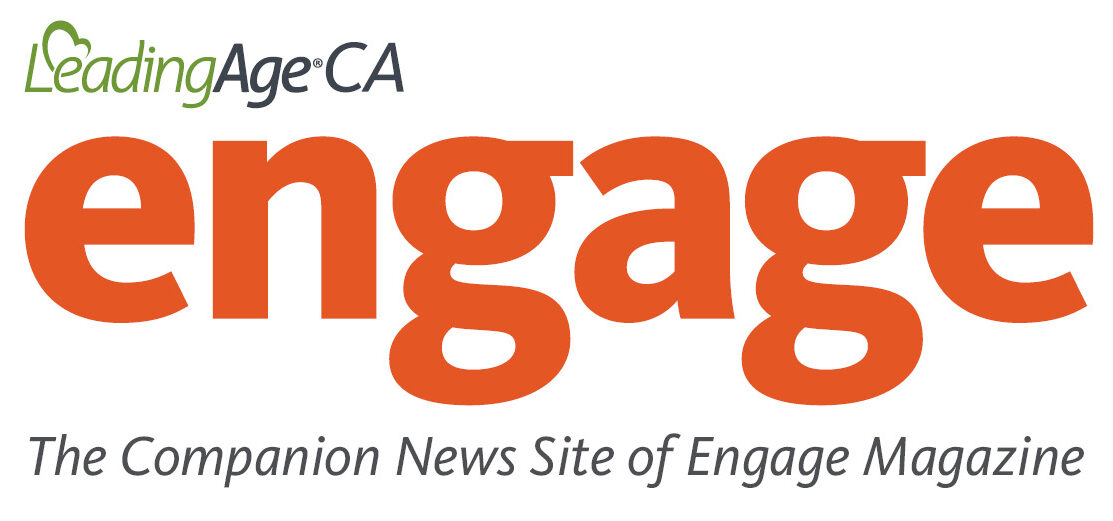by MARIA HENKE, MA, SENIOR ASSOCIATE DEAN; and PINCHAS COHEN, MD, USC LEONARD DAVIS SCHOOL OF GERONTOLOGY
COVID-19 – and its disproportionate assault on older adults – has forced gerontologists to face a new normal; one which demands accelerated answers and advocacy around preventing disease, promoting health and well-being, ensuring safety and security, and confronting inequity. The pandemic underscores the need for curricular content and career training that equips practitioners to respond to today’s critical needs, and also empowers them to drive the discoveries and establish the agendas that will prepare us to meet the needs of our rapidly aging population.
Fortunately, gerontology, the study of aging, is a field that has always focused on the future, advancing scientific breakthroughs, policy improvements, product designs and service solutions that enable people to live long, healthy lives. It is also a field that is flexible, embracing emerging technologies as it evolves to meet the changing needs of our aging society. For these reasons and more, gerontology education programs are perhaps uniquely suited to address the challenges that emerged, or were enhanced, because of COVID-19 and to anticipate the areas to focus on in the years ahead.
Here are some of the ways the USC Leonard Davis School of Gerontology is responding to COVID-19, along with opportunities we have identified to make a continued positive impact going forward:
Preventing Disease
Age is the biggest risk factor for severe illness or death from COVID-19, as it is for cancer, cardiovascular and Alzheimer’s disease, diabetes and other leading causes of death. However, research is revealing that we all age at different rates and that this tempo can be slowed with the correct combination of diet, exercise, and other personalized interventions that can keep disease and decline at bay.
New advanced-degree programs in the biology of aging, nutrition and longevity, and medical gerontology were already leveraging the data derived from the emerging field of genomics, the increasing availability of wearable sensors, and the growing evidence of environmental impacts on health to enable personalized measures that use biomarkers to predict, prevent and treat age-related diseases.
COVID-19 has only enhanced these efforts; our school is at the forefront of creating a cutting edge curriculum – a new course instructing biologists on how to perform big data analyses is one example – to prepare the next generation of scientists, clinicians, registered dietitians, care providers and other aging-field professionals to respond to, and possibly prevent, the adverse impacts of future pandemics, to develop interventions that address inflammation and vaccine access and immunity, and that provide a sustained focus on advancing research that prevents chronic disease and slows biological aging.
Promoting Health and Well-Being
COVID-19 exacerbated the existing epidemic of loneliness. In addition to a loss of social connection, increased isolation also impacted many older adults’ ability to exercise, eat and sleep well. These are all environmental factors that we know are essential for healthy aging.
Opportunity abounds for gerontologists to offer solutions in sectors like technology development, that may not have previously considered the needs of older adults. Online applications can provide supportive services, but they must be designed with interfaces that older adults and their caregivers can easily use. There must also be policies, programs and professionals in place to address issues of access, so that everyone can obtain internet service and learn how to use the various devices that have the potential to deliver everything from telemedicine visits, therapies, diagnostics, transportation, healthy meals and connection to family, friends and other sources of comfort or care.
Certainly, these innovations were not even in our imagination when our school was founded nearly half a century ago. They are now at the core of a curriculum that not only asks how to incorporate these innovations but encourages our students to design and deliver what comes next.
Ensuring Safety and Security
The current pandemic has increased concern that older adults are more likely to experience physical abuse or financial fraud. While medical or business school curricula may not have the time to devote to how to recognize who has been victimized or is the most vulnerable, gerontology degree programs, customized professional education courses and community services provide training and education in the prevention and detection of fraud and abuse, along with policy-making tools to affect change at family, institutional, community or governmental levels.
Similarly, we impart specialized training and expertise in making homes safer by preventing falls or detecting danger through low-tech solutions like handrails and ramps, to internet-connected sensors that can recognize when someone is in distress. As older adults are more able to travel, entire industries are emerging to ensure everything from hotels and restaurants, to cruise ships and concert halls are designed with safety and security at the forefront.
Programs like our Master of Art in in Senior Living Hospitality are uniquely positioned to address these challenges. COVID-19 has most certainly spurred a reevaluation of how – and where – senior care will be delivered and as the industry adapts, so too does the understanding of what 21st century tools future leaders will need.
Confronting Inequity
A recent study from USC and Princeton revealed that COVID-19 reduced U.S. life expectancy, especially among Black and Latino populations; for Blacks, the researchers project their life expectancy would shorten by 2.10 years to 72.78 years, and for Latinos, by 3.05 years to 78.77 years. These staggering statistics have laid bare the need to confront the racial and socioeconomic inequity that predate the pandemic and have been ignored for too long.
Gerontology researchers, educators, practitioners and policymakers have a duty to ensure that all individuals have the opportunity to live and age well. The focus of our field ensures a particularly strong understanding of just how interconnected we all are to one another. We know how critical it is for conversations and communities to span generations, disciplines, and socioeconomic divisions to make meaningful changes in policy, science, and society. Our curriculum must teach students to address tough problems, including the often burdensome costs of healthcare, healthy food, secure housing and quality caregiving, with sound science, innovation and inclusion in mind.
Providing Purpose
This pandemic reinforces what led us all to gerontology in the first place; a belief that we all can, and should, work together to improve how we live and age. This lesson permeates every research project and course curriculum today, and will do so for generations to come.
To learn more about the USC Leonard Davis School of Gerontology, visit https://gero.usc.edu




